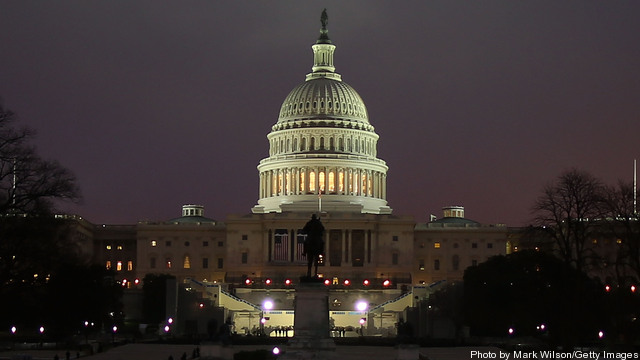
The oil industry has taken aim at the Renewable Fuel Standard (RFS) in a self-interested bid to retain dominance over America’s transportation fuel sector. Our dependence on oil is stifling consumer choice and jeopardizing our national security. Fixing those issues means diversifying our fuel supply; that means breaking the oil monopoly.
We are a nation addicted to oil and until the RFS was created in 2005, we had no infrastructure to break that addiction. The RFS increases consumer choice and energy security, while simultaneously decreasing the overall negative impacts that oil dependence has on our economy and environment. That benefit –consumer choice – is exactly why the American Fuel and Petrochemical Manufacturers, which spent over $1.6 million lobbying in the fourth quarter of 2012 alone, is funding efforts attacking the policy.
What does it really mean to really address the needs of the American consumer and taxpayer? It means making our country safer; saving people money and giving them choices; and growing innovation and American investment. Renewable fuel delivers on those needs where oil does not.
It’s time to realize the falsehoods the oil industry is peddling.
First and foremost, the RFS costs nothing to taxpayers – it’s a policy requiring a certain amount of renewable fuel be blended into gasoline, not a subsidy. That requirement is a necessary one because from production to distribution, the oil industry has had an unchallenged monopoly over our transportation fuel infrastructure and supply. Without a policy to help new and innovative alternative renewable fuel companies access the market, many would have been squeezed out by oil giants.
Meanwhile, the oil industry itself is one of the biggest beneficiaries of government subsidies, raking in $7 billion per year. Between the infrastructure advantage and the billions in subsidies, the fuel market was far from “free” or balanced. The RFS was created in part to correct this market imbalance, and it has worked, advancing oil alternatives and giving customers access to more fuel choices.
When it comes to the broader consequences of both fuels, oil is the cause of casualties abroad and economic volatility at home that makes us vulnerable as a country. In just one example, protecting oil supply lines requires more men and women in the field, and costs the military approximately $150 billion each year. And there are many unintended consequences of oil dependence, from rising carbon emissions to environmental impacts.
Renewable fuel on the other hand enhances national security. Since 2000, the RFS has helped decrease Persian Gulf oil imports by 25%. Once again, we can see that the RFS is working: by enabling the U.S. to import less oil, renewable fuels helped to save Americans roughly $50 billion on imported fuel costs per year. To put that in perspective, that amount is equal to nearly half of the spending cuts required by the looming sequester process in Washington.
At the same time, blending ethanol into the fuel supply lowers the cost of gasoline. According to a study from Iowa State University, the average gallon was $1.09 cheaper than it would have been without ethanol. That’s thousands of dollars in the pockets of consumers annually because of the policy.
The RFS was created for good reason: to support fuel diversity, expand consumer choice, increase national security and reduce the environmental impacts of transportation fuel. The RFS is market based policy that costs the American tax payer $0 per year and is achieving its objectives. The RFS is working.
The Fuels America coalition represents organizations from throughout the renewable fuel industry, from national security firms to renewable energy advocates to agriculture interests. Together, they are committed to protecting America’s Renewable Fuel Standard and promoting the benefits of all types of renewable fuel, from corn ethanol to advanced and cellulosic fuels. Fuels America members include: The Biotechnology Industry Organization; The American Ethanol Coalition; Abengoa Energy; DuPont; Growth Energy; The Renewable Fuels Association; Novozymes; National Farmers Union; POET; National Corn Growers Association; National Association of Wheat Growers; The Advanced Ethanol Council; 25×2; ACORE; ASP; National Sorghum Producers; Biofuels Center of North Carolina; CFDC; Nextsteppe; CFDC; and the Energy Future Coalition.
Learn more at www.fuelsamerica.org and on Twitter @fuelsamerica.
